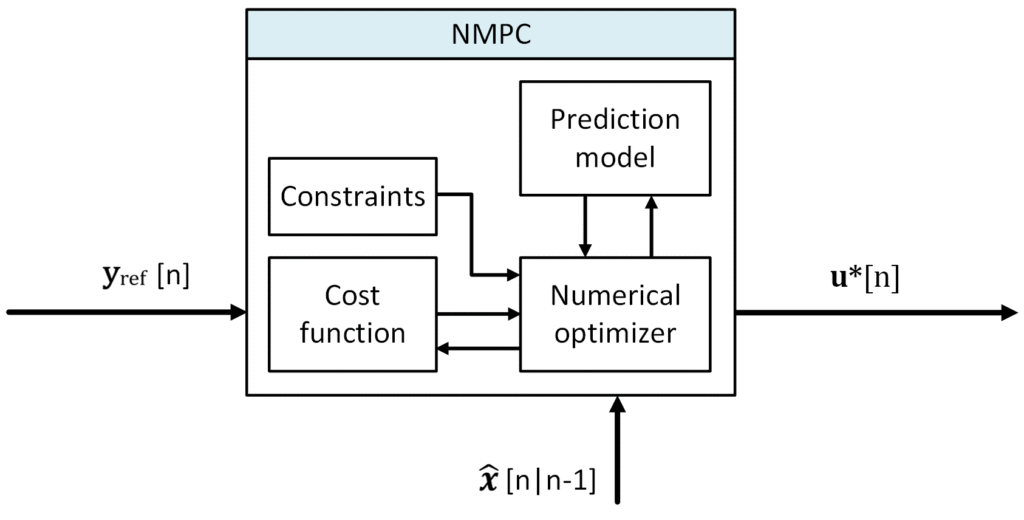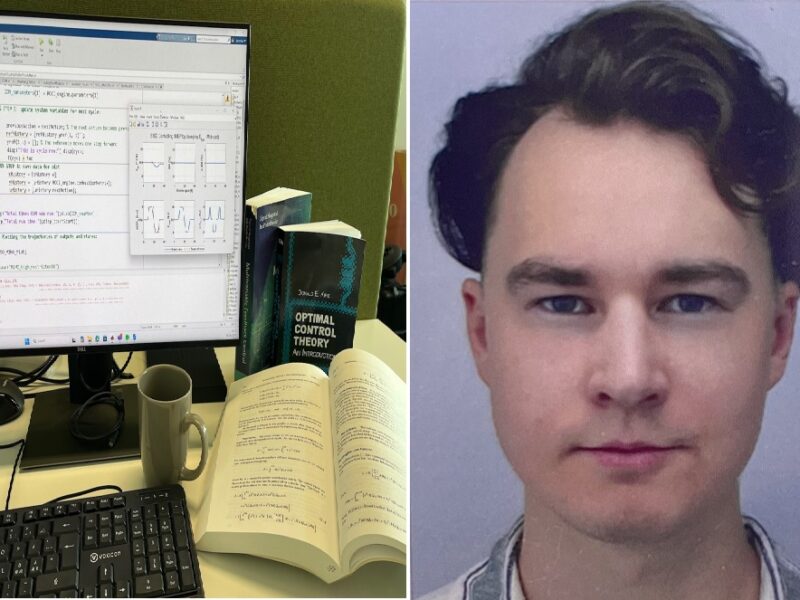Reducing emissions from combustion engines remains one of the major engineering challenges of our time. While fully electric transport is advancing, many sectors such as heavy-duty transport and marine applications continue to depend on fuel-powered engines. The Flexible Clean Propulsion Technologies (Flex-CPT) project is addressing this by developing cleaner and more efficient powertrains through advances in fuels, combustion systems, and control strategies. Jeremias Pohjola, a recent graduate of the Master’s Programme in Automation and Electrical Engineering at Aalto University, explored this challenge in his Master’s thesis on nonlinear combustion control.
The thesis connects strongly with Flex-CPT Work Package 1, which focuses on multi-fuel combustion in medium-speed engines and is led by Prof. Maciej Mikulski from the University of Vaasa. Pohjola’s contribution addresses one of WP1’s central goals: developing model-based and predictive control strategies for advanced combustion concepts such as RCCI. By demonstrating how nonlinear model predictive control can be applied to manage fuel supply and optimize engine behavior in real time, his work provides a practical step toward more flexible and low-emission engine control solutions.
Pohjola’s research focused on an advanced engine concept known as Reactivity Controlled Compression Ignition (RCCI). RCCI engines hold promise for low emissions and high efficiency, but they are complex to manage. “The idea was to first study existing sensors, actuators, and mathematical models for the RCCI engine and then combine them to create a computer algorithm that controls the engine by adjusting the fuel supply,” Jeremias says. “The algorithm is based on the nonlinear model predictive controller (NMPC) framework, which roughly means that the algorithm predicts engine behavior a couple of cycles into the future and then decides the fuel injection values that make the engine behave the best.”

The central components of the NMPC controller
Jeremias’s academic path began with studies in physics and electronics, but his interests shifted during his Master’s studies. “I became fascinated by the multidisciplinary nature and mathematical depth of control theory and have been leaning towards it during my studies,” he explains. “I have always been interested in multiple engineering fields, so control engineering combines them in a very nice way.”
This work represents a step toward cleaner propulsion. “As one major obstacle in commercial RCCI engines is the engine control, this thesis is one step forward towards cleaner combustion engines,” Jeremias notes.
Designing the control system was also the most rewarding aspect for him. “Figuring out the overall architecture of the control system was especially interesting,” he recalls. “Figuring out how different components should be organized and connected allowed me to use my creativity and math intuition to the fullest.”
The process, however, was not without challenges. “A major challenge with the NMPC approach is the high computational load,” Jeremias explains. “This is mostly due to nonlinear optimization that needs to be computed online while the engine is running. Multiple ways to mitigate this issue were proposed, such as separating the combustion control into smaller subtasks which are individually much faster to compute. However, implementing these was left for future work.”
Although this work focuses on RCCI engines, its implications extend more widely. “The same controller architecture could be used to control many different engine types or similar processes,” Jeremias says. “Although not a finalized product, this thesis provides a foundation for developing controllers for advanced combustion engines such as the RCCI.”
Looking ahead, Jeremias is continuing with this line of research. “My next step is to continue working on the RCCI combustion control as a PhD student here in Aalto and to improve the control system based on the findings of this thesis,” he says.
Jeremias’s thesis was supervised by Prof. Arto Visala and advised by Amin Modabberian (MSc), who guided him in developing a project that stands as both an academic achievement and a practical step forward for cleaner combustion control.
By addressing one of the key barriers in advanced engine concepts, his work contributes directly to the Flex-CPT project’s goal of advancing flexible, low-emission propulsion technologies for the future.



